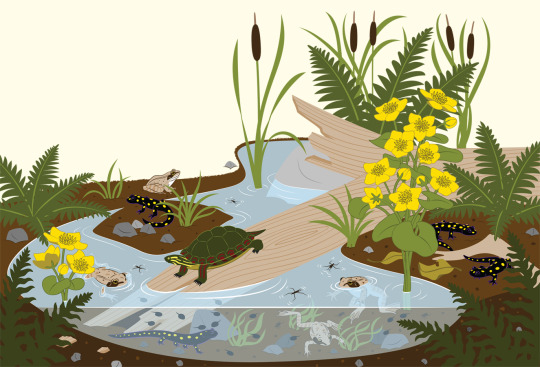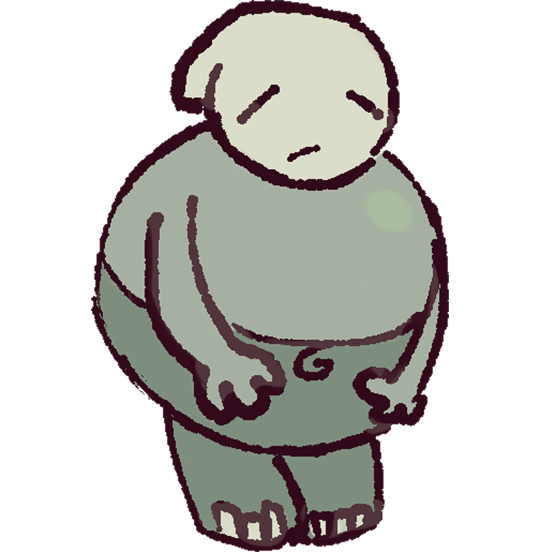#homeschool
Text
okay homeschoolers gather round
For the purposes of this poll, I’m using “homeschooling” to reference an education given to you at home by your parents or other adult, using curriculums to teach you themselves.
For example, I consider myself homeschooled up to high school where I then had supplemental lessons, because up until high school my education was based off the curriculums my mom used for me, and when I reached high school I had online classes.
EDIT: I realized I forgot an option for starting off in public/private school and transitioning to homeschool 🤦🏻♀️ I am so sorry just click other and put it in the tags
131 notes
·
View notes
Text
If you could answer this, put your country/state in the tags, and share this it would be appreciated! I'm an ex-homeschooler from Texas and I'm genuinely curious on what people from outside of America think about homeschooling or if it's even a thing elsewhere
#boost#b00st#share#poll#polls#i love polls#homeschool#homeschooling#school#public school#study#world#worldwide
11K notes
·
View notes
Text
Btw, since I've seen discourse about this recently, I'm curious.
"Some part of" here would be referring to peers, teachers, curriculum, the system in general, location, etc etc. If you have been bullied by kids or teachers, for example, that would count.
Please reblog so we can get a lot of results, ty!
EDIT: I'm sorry I forgot to include options regarding private schooling or whether you'd done both 😔 It's too late to adjust it at this point so, vote however you think is best (or don't, your choice)
653 notes
·
View notes
Text
DEAR EDUCATIONALLY NEGLECTED HOMESCHOOLERS
I’ve gathered some resources and tips and tricks on self-educating after educational neglect. This is only what I did and what I know helped me. I’m about to graduate college with honors after having no education past the age of 9. I wouldn’t be here without the following. Everything is free, and at/well above the standard for education in the US.
The holy grail: Khan Academy. Nearly every course you could take is available here, in order and by grade level. Their open-source free courses rival some of the college classes I’ve taken. This is your most solid resource.
For inattentive types: Crash Course offers a variety of courses that are snappy, entertaining, and extremely rewarding. They work for my ADHD brain. They also have college prep advice, which is essential if you’re looking to go to higher education with no classroom experience.
To catch up on your reading: There are certain books that you may have read had you gone to school that you’ve missed out on. This list is the most well-rounded and can fill you in on both children’s books and classic novels that are essential or at least extremely helpful to be familiar with. You can find a majority of these easily at a local library (and some for free in PDF form online low key). There are a few higher level classics in here that I’d highly recommend. If it doesn’t work for you, I’d always recommend asking your local librarian.
*BE AWARE* The book list I recommend suggests you read Harry Potter books, and given their transphobic author you may or may not want to read them. If you choose to, I’d highly recommend buying the books secondhand or borrowing from a library to avoid financially supporting a living author with dangerous and damaging views.
TEST, TEST, TEST: Again, Khan Academy is your go-to for this. I don’t personally like standardized testing, but going through SAT and ACT courses was the best way I found to really reveal my gaps so that I could supplement.
Finally: As much as you can, enjoy the process. Education can be thrilling and teach you so much about yourself, and help shape your view of the world. It can get frustrating, but I’d like to encourage you that everyone can learn. No pace is the perfect pace, and your learning style is the right learning style for you. In teaching yourself, be patient, be kind, and indulge in the subjects you really enjoy without neglecting others. You are your teacher. Give yourself what others chose not to.
#if you have any questions please don’t hesitate to message me anything#I’ll help however I can#homeschool#ex fundamentalist#ex homeschool#ex homeschooled#educational neglect#education#self education#ex fundie#send me asks#homeschool recovery#resources#educate yourself#ex christian#exvangelical#religious trauma#tw religion#deconstructing christianity
5K notes
·
View notes
Text
Anyway, I've seen some rancid takes about this topic recently so here's a reminder that the homeschooler that's socially isolated and basically in a cult and was never taught science because Jesus said no is so rare that it's functionally a myth to make people against the idea of homeschooling in theory
#homeschooling#homeschool#not to say it doesn't exist but like#how many of those people have you actually met
1K notes
·
View notes
Text


Went out to the pond to take this photo, and heard the first spring peepers of the year. Yay! It's officially spring in Downeast, Maine.
This illustration is one over 100 I did for the forth Nature Smarts activity book from Mass Audubon and Storey Publishing. Nature Smarts Workbook: All About Water, Ages 4-6 is available for preorder now, and out May 21st. You can find it through Amazon, Mass Audubon, and other book sellers.
#vernal#pond#pool#amphibians#frogs#illustration#jada fitch#art#maine#drawing#nature#naturalist#kid's illustration#kid#children's#outdoors#outdoor#activity book#outdoor activities#kids#workbook#ages 4-6#educational#mass audubon#homeschool#new england#wildlife#water#all about water#vernal pond
97 notes
·
View notes
Text
did you also have an instrumental fantasy music phase or were you not homeschooled
200 notes
·
View notes
Text
“You want a dystopian future for all women!”
Firstly, I already know and have expressed that my lifestyle choices are not right for every woman and not every woman is right for the lifestyle I’m choosing.
What is so dystopian about the following?
A loving couple getting married
A safe home
Garden-fresh food
A family unit with strong bonds
Well-educated and happy children
A knowledgeable appreciation of nature
A sense of community
National pride
Escaping “the grind”
#traditional gender roles#tradwife#tradlife#housewife#homemaker#homemaking#traditional home#stay at home wife#relationship#homesteading#homeschool#stay at home mom
128 notes
·
View notes
Text





made a bunch of my old HSR drawings transparent :3
275 notes
·
View notes
Link
Stacks of books on the living room’s end tables testified to their belated efforts at self-education: popular works by the biologists Neil Shubin and Robert Sapolsky, as well as “Raising Critical Thinkers” by Julie Bogart, a leading developer of home education materials who has criticized conservative Christian home-schooling groups. Aaron and Christina were still young, but they knew enough about the demands of life, work and family to understand that they could not recover or reconstruct the lost opportunities of their childhoods.
But they could provide new and different opportunities for their own kids. They were doing so in Loudoun County, one of the hotbeds of America’s culture wars over public instruction about race and gender. To the Bealls, who truly knew what it was like to learn through the lens of ideology, concerns about kids being brainwashed in public schools were laughable.
“People who think the public schools are indoctrinating don’t know what indoctrination is. We were indoctrinated,” Aaron says. “It’s not even comparable.”
There were still moments when they were condemned by an inner voice telling them that they were doing the wrong thing, that both they and their children would go to hell for abandoning the rod and embracing public schools. But the voice was usually silenced by their wonder and gratitude at the breadth of their children’s education.
313 notes
·
View notes
Text
April 30, 2023
"Day of the Homeschooled Child is a yearly observance to recognize children harmed by minimal homeschool laws across the U.S. On this day, we come together to honor three specific groups within the homeschooling community:
Children who have been murdered in homeschool settings
Children who survived severe abuse and neglect in homeschool settings
Homeschool alumni with traumatic experiences
Why? Because in the national conversation surrounding homeschooling, abused children and adults are too often unheard. That’s why we founded the Coalition for Responsible Home Education and created Homeschooling’s Invisible Children, a public database of child abuse and neglect cases in homeschool settings. And it’s why we created Day of the Homeschooled Child, set in April to coincide with National Child Abuse Prevention Month.
Today, over 1.7 million children are homeschooled in the U.S. But unfortunately, state homeschool laws have almost no measures to ensure these children are receiving a quality education in a safe home.
Here’s a glimpse of what this policy failure looks like:
In 48 states, it’s legal for registered sex offenders and convicted child abusers to homeschool their own children without any restrictions. There are no requirements for those at-risk children to have contact with mandatory reporters of child abuse.
In 11 states, parents aren’t required to notify education officials of their decision to homeschool. That means countless homeschooled children aren’t being accounted for in any way.
No state requires homeschooling parents to screen their children for medical conditions or ensure those children receive care. Abusive homeschooling parents can keep their children away from life-saving medical care without anyone to notice or intervene.
Millions of homeschooled children lack guaranteed access to child welfare programs their public-schooled peers have. That includes food and nutrition programs, age-appropriate sex education, mental health counseling and resources, and monitoring for child abuse and neglect."
316 notes
·
View notes
Note
I don’t know if I agree with homeschooling. I always found it doesn’t really expose kids to the real world and kind of teaches them to bubble wrap themselves from the rest of the world. Did you have a good experience being homeschooled and feel differently? (PS. This isn’t supposed to be an argument or a jab, just thinking about stuff!)
Well, in one sense, you are correct.
Homeschooling does not expose children to the evils of the real world before they are ready to comprehend them.
As a child, I was not exposed to porn, sex, drugs, bullying, verbal abuse from my peers, physical or sexual abuse from others, or authoritative abuse from adults.
Now, I'm not saying these things cannot/don't happen within the home. They do, and it's evil. However, there is a far lesser chance of them happening when you, the parent, are actively engaged in your child's life and education.
Instead, my childhood was one of love and support and growth. My interests were fed and developed, and my needs met both emotionally and intellectually by my parents who were both fully invested in my education and development.
My experience with homeschooling (as well as the majority of my friends') is that we were educated at a pace that was our own, many times a faster rate and higher level than our peers within public school. I normally finished all my "in the books" schooling for the day from 10am-1pm. Even so, when compared to my peers, I tested one to two "grades" higher than my age range.
My exposure to "real world" issues was monitored by my parents. I had discussions about what sex, marriage, racism, politics, government, abuse, and various other "real world" topics were at an age appropriate level that gradually advanced until I was about 17 yeas old.
As far as "real world" experiences go:
I volunteered at a hospital during my teenage years.
I knew how to work and how to manage my money from the time I was fifteen. (First babysitting, then eventually retail.)
I was in soccer as a kid and later did martial arts for ten years.
I learned and talked politics with my family and other home schooled kids from the time I was fifteen.
I had a class specifically titled "worldviews" in which I learned not only my Christian worldview, but about other religions and politics and current cultural events happening around us.
I learned about puberty in a safe environment with all my questions answered and the comfort of understanding what was happening.
I never had to deal with crude comments or abuse as a young girl.
I consumed media that was age appropriate and anything I encountered that I questioned or was unfamiliar with, I brought to my parents whom I trusted and would always discuss things with me in a mature manner.
I grew up with a consistent friend group that I trusted and still have to this day, though time has changed our dynamics and relationships. Currently, I'm quite content with my ability to make friends, socialize, and the number of friends I have.
My relationship with my parents was strong and held mutual trust. I was monitored as a small child, but gradually gained more independence as I got older and understood more about the world. If I had questions, I would bring them to my parents with no hesitation, embarrassment, nor fear. That relationship still remains, though now I'm a good number of years into adulthood.
Every challenge I faced growing up, I felt prepared for-- because my parents had taken the time to prepare me for it. In my education, work life, social life. If it was unfamiliar, I would bring it to them, but I rarely had to. I knew how to problem solve and think critically. I knew how to think things through and address adults and those in authority even if I was in an unfamiliar place. I could find my way around situations with little anxiety.
When it came time for college, I tested higher than average and was asked if I'd graduated in the top 5% of my class. I am now in an honors program and recently accepted into the highest ranked honors society across all majors in the country.
What real world experience does a child need that their parents cannot provide them when they actually invest in their children?
Society trains us into believing that a parent cannot provide their child with the education, development, and "experiences" they need. But what are these "experiences"?
Our media is flooded with horror stories and abuse victims of the public school system-- from burnt out teens, to abuse, to drugs and pregnancy, to anxiety attacks, to bullying, to pornography exposure.
What benefit does it give you as a parent or your child to hand them over into the hands of strangers (whom you're told to trust) for 8+ hours a day to sit in a chair and be lectured to with little to no expression or socialization with anyone outside of the classroom environment? They may sit in the same room as other peers (not allowed to move or talk), walk the same halls, eat in the same places, but they are not learning to properly engage with the world around them.
Children primarily interact with others their age during the day, and in what way is their conversations developing life skills that they need? Yes, they have friends and that is good. People need healthy friends. But a majority of the people they engage with are not their friends and they are not learning how to handle tough situations with individuals.
They are learning to judge one another, to morph and fit in, to avoid being bullied, to become the cutout that the government appointed educator approves of.
I always remind parents, schools don't just teach "abcs" and "123s". Schools form your children's entire foundation and worldview. The internet indoctrinates kids more than anything else once you let them have access to it.
Do you trust over 100 other children to have your child's well being and best interests at heart? Do you trust the government appointed official? Do you trust the internet?
Either you raise your kids; or someone else will.
You teach your child; or someone else will.
#homeschool your kids#homeschooling#homeschooled#homeschool#home school#anon#on homeschooling#hall of fame
519 notes
·
View notes
Text
How to HELP Children learn?
Tips for Successfully Teaching Children
Be gentle and respectful at all times. Equality is important even if there is an age and intelligence gap.
Create the right environment which is free from stress, pressure and fosters creativity, trust, curiosity and fun vibes. Keep the pace of learning comfortable for the child.
Cater to the specific learning style of the child and learn to observe their areas of interests and listen to what motivates them. Participating and self-expression is essential to keep the child engaged.
Try out a combination of learning methods to help the child understand, such as tactile, movement-based, visual and auditory. Always provide context for what is being taught and why we need to learn it from a larger perspective.
Stick to the basics but also be spontaneous with the curriculum. The right mood for the right subject is important. Take time to present information in an appealing manner that excites the child.
Be in the right mind space attitude and energy when you are going to teach the child. If you lack enthusiasm, learning will suffer.
Teach as per the individual’s grasping power and introduce new concepts only when the foundation is ready for them.
Keep it light and don’t overload or confuse children with unnecessary information. Make sure they have understood before moving forward.
Each individual has subjects that they are more drawn to versus others. Choice is a gift, hence we need to honor the choices of children and understand that each one is born with a unique purpose.
#parenting#teaching#teachers#homeschool#homeschooling#home school#children#child development#child psychology#rainbow children#new earth#starseed
74 notes
·
View notes
Text
69 notes
·
View notes
Text

royal albert jimmy is giving ✨homeschooled boy✨ and i wouldn’t change it for the word. the cutest little dork out there.
#homeschool#70s#classic rock#royal albert hall#jimmy page#led zeppelin#60s#rock and roll#70s fashion#guitar#jimbert
120 notes
·
View notes
